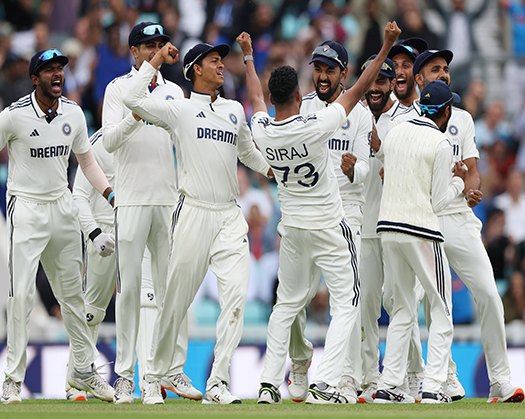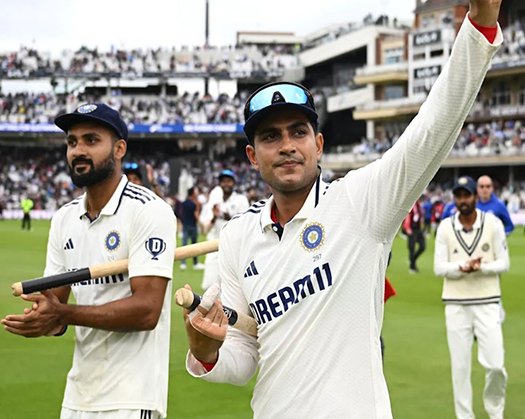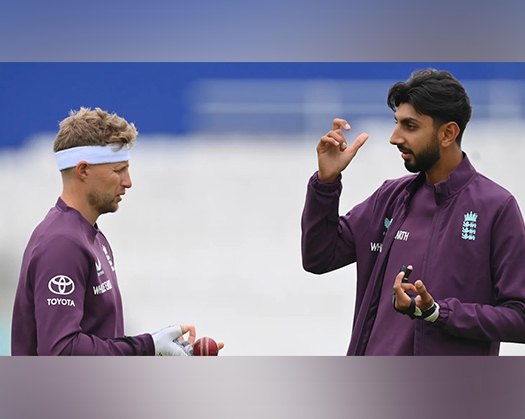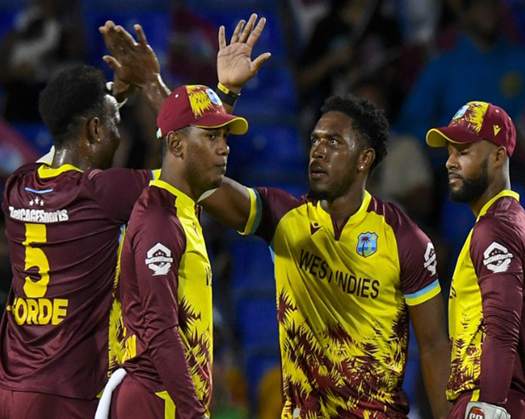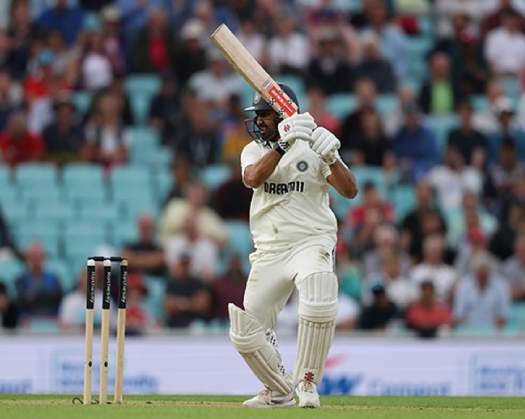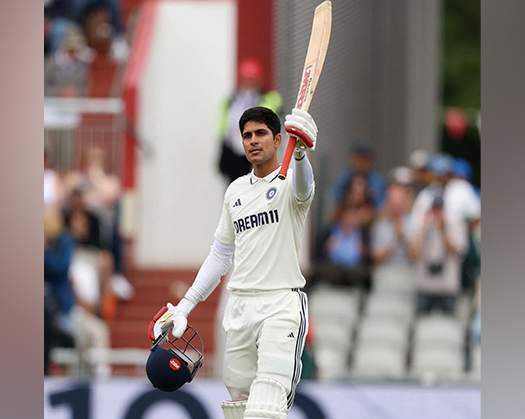London: The 2025 Test series between India and England will be remembered in history as one of the most captivating and record-breaking five-match series ever played. The Anderson-Tendulkar Trophy, which ended in a 22 draw, had everything: drama, fortitude, outstanding performances, and, most importantly, a slew of statistical milestones that highlighted how unique the cricket had been in recent weeks, according to Wisden.
India's series-tying victory at The Oval was more than simply a hard-fought triumph; it was historic. The six-run win was India's narrowest Test cricket triumph in terms of runs, surpassing their 13-run victory over Australia in Mumbai in the 2004-05 season. The Oval Test was also the first time India has won either the fifth or sixth Test of a series overseas. It took them 17 attempts to reach their goal. Their only other experience of playing a sixth Test abroad was in 1982-83, when they drew in Karachi.
The game was highlighted by Mohammed Siraj's brilliance, as he took the game's final wicket and was the series' leading wicket-taker with 23, the joint-most by an Indian bowler in a Test series in England, a record he now shares with Jasprit Bumrah, who accomplished the same across the 2021 and 2022 legs. Siraj's match totals of 9/190 at The Oval were the best ever by an Indian at the venue, surpassing the legendary Bhagwat Chandrasekhar's 8/114 in the famous 1971 triumph. Those statistics are currently the fifth-best match figures recorded by an Indian in England. Prasidh Krishna ranks tenth with 8/188. No visiting bowler has achieved such statistics at The Oval since Shane Warne took 12/246 in 2005, and Siraj became the first visiting fast bowler to pick up nine wickets in a Test at the venue since Pakistan's Wasim Akram took 9/103 in 1992.
Siraj's 46 wickets in England are the third-highest total for an Indian, trailing only Bumrah and Ishant Sharma, who have 51 apiece.
Siraj was not the only one to make history in this Test. Gus Atkinson, Josh Tongue, and Prasidh Krishna each took eight wickets. Together with Siraj, their efforts resulted in a historic event: four bowlers capturing eight or more wickets in a single Test at The Oval.
India's pace attack was relentless and precise. Siraj, along with Prasidh and Akash Deep, shared all ten English wickets in the fourth innings, only the fifth time in Indian Test history that fast bowlers took all of the wickets in the final innings. The Indian trio bowled 463 deliveries in that innings, which is the fourth-most balls bowled by Indian pacers in the fourth innings of a Test. It is also the second most while just three bowlers were employed. The only time Indian pacers bowled more balls in a similar situation was in 2002 at Port of Spain, when Javagal Srinath, Ashish Nehra, and Zaheer Khan combined for 505 deliveries.
Young wicketkeeper Dhruv Jurel calmly prolonged his own unique streak. Jurel has won five Test matches in a row, adding another victory to his unblemished record. He now holds the Indian record for the longest undefeated start to a Test career, however the global record remains held by West Indies' Eldine Baptiste, who won all ten of the Tests in which he participated.
In the final innings, Joe Root scored his 39th Test century for England. That innings propelled him past Kumar Sangakkara's 38 centuries, placing him behind Sachin Tendulkar (51), Jacques Kallis (45), and Ricky Ponting (41) on the all-time list. Root and Harry Brook combined for a 195-run partnership, which is the second-highest fourth-innings partnership ever in a losing cause, trailing only KL Rahul and Rishabh Pant's 204-run stand at The Oval in 2018. Their double-century stand couldn't rescue England, and despite a solid start at 332/4, a slump saw them fall just short.
Root and Brook recorded the seventh time in Test history that two batsmen scored hundreds in the final innings, but their tea(England versus Australia at Sydney in 1924-25, India versus England at Old Trafford in 1959) was the first time that one of the batsmen scored a half-century in the same innings, as Ben Duckett did here.
This was only the third time in Test history that a team lost after scoring more than 300 runs for the loss of only three wickets in the fourth innings. The previous two examples were Australia's collapse from 305/3 to 310 all out against Pakistan in 1978-79, and the West Indies' collapse from 303/3 to 387 all out against Australia in 200708 while chasing 475. England's collapse from 332/4 to defeat places them second on the list of the greatest four-wicket down totals in a failed chase, with the only one ahead of them being their own 346/4 turned 417 all out in Melbourne in 1976-77.
Shubman Gill was crucial to India's batting effort, enjoying a fantastic series with the bat. He eclipsed Garry Sobers' previous record of 722 runs to establish a new mark for the most runs scored by a traveling captain in a Test series. Gill's 754 runs is currently the second-highest total by a captain in a Test series, trailing only Don Bradman's incredible 810 runs in the home Ashes of 1936-37. Sunil Gavaskar is the only Indian to have scored more runs in a single series, with his 774 in the West Indies in 1970-71 still topping the list.
Ravindra Jadeja also maintained his fondness for English conditions. With a total of 1,158 runs in England, he is now third among Indians, trailing Sachin Tendulkar (1,575) and Rahul Dravid (1,376). Jadeja's ten fifty-plus totals are tied for second-most for India in England, trailing Tendulkar's 12. Remarkably, among visiting cricketers in any country, only Garry Sobers, with 1,820 runs and 62 wickets, has more runs and wickets than Jadeja's 1,158 runs and 34 wickets in England.
The 2025 England-India Test series was more than simply individual talent; the series as a whole smashed several records for total runs and hundreds. A total of 7,187 runs were made over the five games, setting a new record for the most runs in any Test series of five or fewer matches, surpassing the 6,826 runs scored in the 1928-29 Ashes. The only series in Test history to yield more runs was the six-Test Ashes of 1993 in England, which totaled 7,221 runs.
There were 21 century scored during the series, tying the all-time record established in the West Indies-Australia series of 1955. The series also equaled the record for the most fifty-plus scores in a series, with 50, tying the 1993 Ashes.

